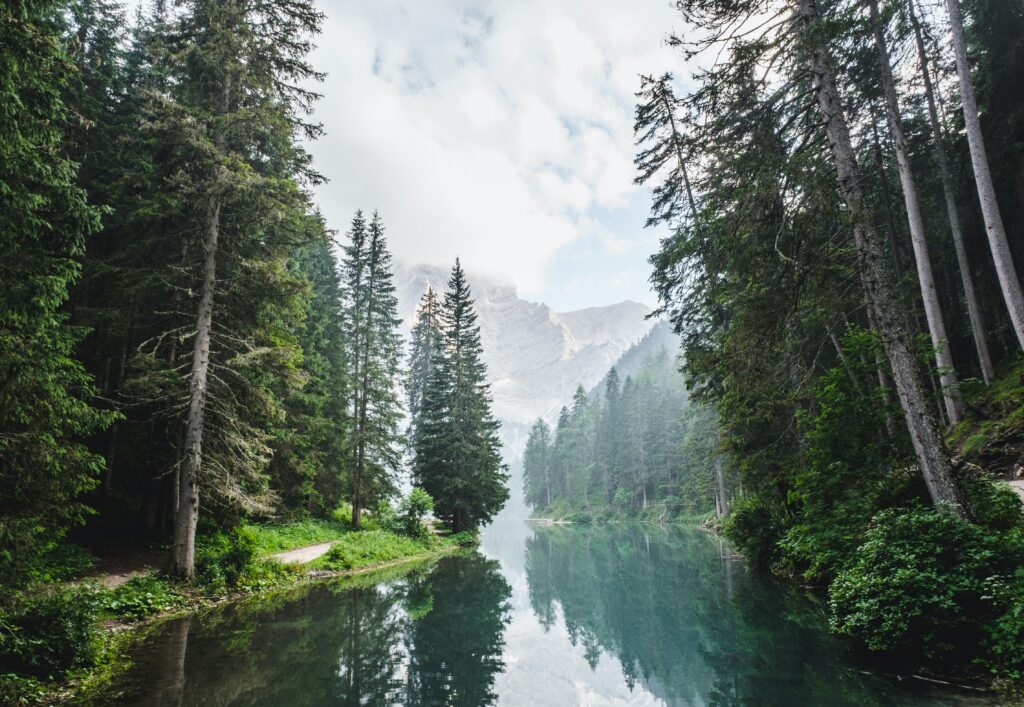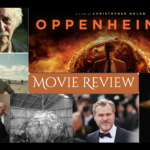
It was 1995, present in the middle of Yellowstone national park, in the US, was a beautiful & scenic valley. Miles and miles of panoramic treeless land, dotted with shrubs and small plants. Beautiful spotted deer were browsing the plants and grazing the grass. There was silence, not even the sound of the wind rustling the trees as there weren’t any trees around. There was silence, No sound of flowing streams that are usually found in a forest, for there weren’t any. There was silence, as there weren’t any animals apart from the deer.
Suddenly, out of nowhere come a pack of wolves which makes the deer scatter like an explosion.
The pack of wolves target a single deer, chase it, spring on it and snap at it from all sides.
The deer falls pathetically, its hooves drumming the ground in a frantic hope for survival. One of the wolves strangles its neck and in less than a minute, all is over and the wolves have their meal.
Who is the villain here?
Yellowstone was not a natural habitat for the wolves. They were introduced into it in 1995 as part of a science experiment called “rewilding”.
A few days and a few more hunts later, the deer learn from experience and radically change their behaviour. They start to avoid the places where they could be trapped by the wolves– the valleys, the gorges and the ridges.

With no deer to stop vegetation growth, these places start to regenerate. The height of the trees increase 4 times in just a year, leading to a traffic of birds, bees and beavers. The bees help in pollination, the birds help spread the seeds of trees far and near and the beavers build dams of water along the small streams which bring in fish, reptiles and amphibians. The area explodes with life!!

Barren valleys grow to be forests. Then come the large birds like eagles and vultures. The rivers have more water and because of the new forests coming in their way, rivers change their courses. Vegetation grows and stabilises soil erosion. In just a matter of few years, the entire ecology of that part of the Yellowstone national park changes into a wild forest, a noisy forest, a very wet forest. Wild with a variety of flora & fauna, noisy with the cacophony of bird calls & insect songs and wet with rains and streams and rivers.
All because of a small pack of wolves and a few herds of deer less.
Now with this sequel to the initial story of the hunt, our initial judgement of the wolves being the villains of the story change and the possibility that the deer aren’t saints either, dawns on us.
It is very easy to fall for the drama and unduly make a villain out of the wolves when the deer were doing the same thing to the plants and shrubs. They stopped what could have been a thriving habitat for several flora and fauna.
If you look at the big picture, you could say both were villains or if you put in some perspective, both of them were not villains, they were just eating their food. They were just trying to survive, and the only difference was that the wolves’ way of bringing food to the table was more dramatic in our eyes!!!
That brings us to the crux of this post. The above real-life story was to highlight how drama hijacks our normal thinking process. Not just here, but everywhere a sense of drama clouds our judgement and we could take wrong decisions.
We need to be dispassionate in decision making in our everyday lives. We vote the wrong person falling for an impassioned speech, or choose a wrong partner at an emotional moment. We could make bad investment choices based on an entertaining presentation or quit a company because we are angry with the boss. This power of drama / stories / narratives are very well exploited by companies in their advertisements. The next time you see an advertisement, pause to reflect if it was about the products’ features or its benefits or was it just an emotional story to make you feel a particular way. I am not advocating you to be a callous calculating machine, but at least take a moment to reflect without emotions before you make an important decision.
Emotion is temporary, while the decisions you take could be permanent.
Beware that an emotional decision is not always the right decision. In such circumstances, we could be our own villains & victims. So the best way to avoid these traps is to defer decision making until we clear our heads and are ready to be objective.
Picture credits: Forest picture is a Photo by Luca Bravo on Unsplash & the stream picture is a Photo by Amit Godase on Unsplash.






Agre Srikrishnan. If we don’t preserve nature, we won’t last
Excellent write-up that triggers some serious thinking.
Honestly, we are tuned to see a hero and a villain both in real-life and movies.
Having said that, emotions are what makes us humans (i suppose!).
Thank you Srikrishnan for the womderful.narrative. Well said. The challenge to the common man is to choose the correct narrative. False narratives appears more authentic and backed by millions of viewers. We need to strive hard to overcome that.
Hi Srikrishnan
Nice write up and fully agree with your views. I feel animals learn and change their decision and stick to it but we humans are very susceptible and impulsive.
Beautiful write up prompting some thinking, sans emotion i.e., Sree.
You have brought out the obvious truth that:
Nature acts naturally,
Humans think emotionally,
It makes it hard to miss a divine presence,
Despite our supposed sixth sense !